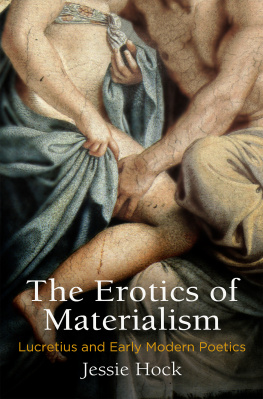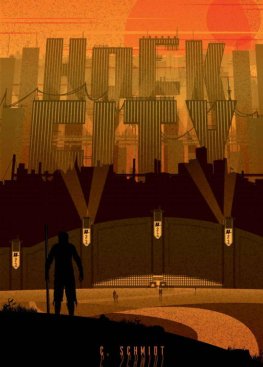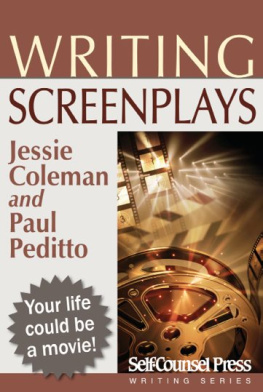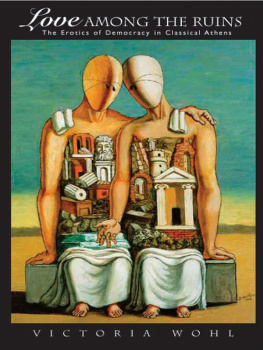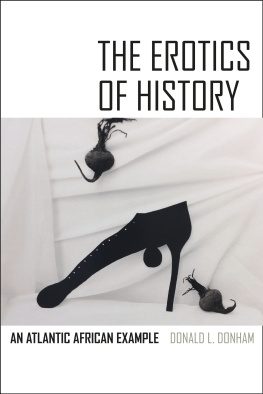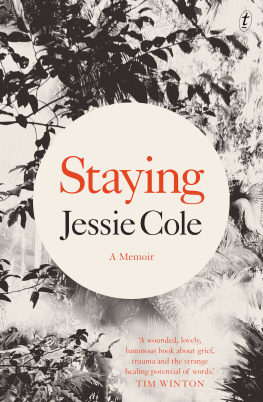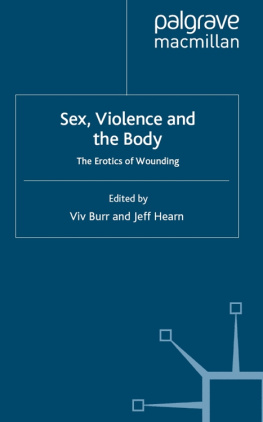Jessie Hock - The Erotics of Materialism
Here you can read online Jessie Hock - The Erotics of Materialism full text of the book (entire story) in english for free. Download pdf and epub, get meaning, cover and reviews about this ebook. year: 2020, publisher: Lightning Source Inc. (Tier 2), genre: Romance novel. Description of the work, (preface) as well as reviews are available. Best literature library LitArk.com created for fans of good reading and offers a wide selection of genres:
Romance novel
Science fiction
Adventure
Detective
Science
History
Home and family
Prose
Art
Politics
Computer
Non-fiction
Religion
Business
Children
Humor
Choose a favorite category and find really read worthwhile books. Enjoy immersion in the world of imagination, feel the emotions of the characters or learn something new for yourself, make an fascinating discovery.
- Book:The Erotics of Materialism
- Author:
- Publisher:Lightning Source Inc. (Tier 2)
- Genre:
- Year:2020
- Rating:5 / 5
- Favourites:Add to favourites
- Your mark:
- 100
- 1
- 2
- 3
- 4
- 5
The Erotics of Materialism: summary, description and annotation
We offer to read an annotation, description, summary or preface (depends on what the author of the book "The Erotics of Materialism" wrote himself). If you haven't found the necessary information about the book — write in the comments, we will try to find it.
The Erotics of Materialism — read online for free the complete book (whole text) full work
Below is the text of the book, divided by pages. System saving the place of the last page read, allows you to conveniently read the book "The Erotics of Materialism" online for free, without having to search again every time where you left off. Put a bookmark, and you can go to the page where you finished reading at any time.
Font size:
Interval:
Bookmark:

The Erotics of Materialism
The Erotics of Materialism

Lucretius and Early Modern Poetics
Jessie Hock

Copyright 2021 University of Pennsylvania Press
All rights reserved. Except for brief quotations used for purposes of review or scholarly citation, none of this book may be reproduced in any form by any means without written permission from the publisher.
Published by
University of Pennsylvania Press
Philadelphia, Pennsylvania 19104-4112
www.upenn.edu/pennpress
Printed in the United States of America on acid-free paper
10 9 8 7 6 5 4 3 2 1
Library of Congress Cataloging-in-Publication Data
Names: Hock, Jessie, author.
Title: The erotics of materialism : Lucretius and early modern poetics / Jessie Hock.
Description: 1st edition. | Philadelphia : University of Pennsylvania Press, [2021] | Includes bibliographical references and index.
Identifiers: LCCN 2020019209 | ISBN 9780812252729 (hardcover)
Subjects: LCSH: Lucretius Carus, TitusInfluence. | Lucretius Carus, TitusCriticism and interpretation. | Lucretius Carus, Titus. De rerum natura. Liber 4. | European poetryRenaissance, 14501600History and criticism. | European poetry17th centuryHistory and criticism. | PoeticsHistory16th century. | PoeticsHistory17th century. | Love poetry, LatinHistory and criticism. | Erotic poetry, LatinHistory and criticism.
Classification: LCC PN1181 .H63 2021 | DDC 187dc23
LC record available at https://lccn.loc.gov/2020019209
CONTENTS

INTRODUCTION

The Supple Snare
Overwhelmingly in my submission to readings supple snare, I feel love.
Lisa Robertson, Nilling (2012)
Seduction
In 1500, the Greek migr Michael Marullus (b. ca. 1453/4) drowned while trying to cross the flooded Cecina River in western Italy. Marullus was a scholar and poet prominent in humanist circles in Florence and Naples, the compositor of an influential set of corrections to the text of a recently rediscovered masterpiece of classical Latin literature, Lucretiuss epic poem of nature, De rerum natura (On the Nature of Things, hereafter DRN, composed around 50 BCE). In this context, the story of Marulluss death has a moralizing force, implying that his passionate attachment to the heretical DRN led to his untimely end.
Gossip also linked the death of Thomas Creech (b. 1659), one of the earliest English translators of DRN, to his fixation with Lucretian poetry. In the preface to his translation, Creech admits to an obsessive relationship with DRN, writing that he loved Lucretius almost more than is right.
The persistence of these storiesabout Lucretiuss love madness, Marulluss untimely death, and Creechs suicidereveals a deep anxiety about DRN. They censure those who dared to tarry with DRN, tarring them with the brush of Lucretian heresy, and also function as cautionary tales, regulatory mechanisms for warning others of the texts dangers. In DRN, Lucretius uses stories about sex and desire to foreground poetic issues: amorous seduction is a figure for the persuasive work of poetic language, and discussions of erotic fantasy and sex are venues for thinking through the relation between fantasy and matter, images and the things they represent. Lucretius mounts a robust defense of poetrys ability to explain mysterious natural phenomena and persuade readers of difficult philosophical doctrines. Early modern readers were attentive to Lucretiuss emphasis on poetry and understood that Lucretian materialism entailed a theory of the imagination and, ultimately, a poetics, which they were quick to absorb and adapt to their own uses. Today, DRN is best known as a source of materialist and atheist thought in early modernity, but sixteenth- and seventeenthcentury poets read DRN as a treatise on the poetic imagination, initiating an atomist genealogy at the heart of the lyric tradition.
Jeromes apocryphal biography of Lucretius established erotics as a flashpoint for DRNs reception. The church fathers accusations about the love potion had an enormous influence on Renaissance and early modern editors of Lucretius, almost all of whom approvingly repeat the story for the benefit of their readers. The interlude foregrounds the sexual potential of linguistic seduction and the erotic power of Lucretian poetry. Having already invoked Venus as his muse, Lucretius aligns the Venus of poetic inspiration with the Venus of sexual seduction and associates his poetry with the pleasures of the flesh. Love and war are DRNs overriding metaphors: atoms are said to crash together in the void like soldiers clashing in battle, and sexual desire is presented as the engine of all change and creation, as in the poems opening lines, where it is passion for Venus that presses animals to procreate and flourish. The episode with Venus and Mars suggests that the imperative of Lucretian poetry is to shift the balance of power from war to love.
From its opening lines, and in its most gorgeous poetic set pieces, DRN declares itself to be a poem of seduction, one that does not shrink from using deception and the sensual manipulations of language to entice its readers. By calling attention to its seductive stratagems, DRN produced readers attuned to the power of poetic seduction and the potentially dangerous effects of Epicurean philosophy. Even as poetic language does crucial persuasive and explanatory work, drawing readers to Epicurean thought and illuminating the subvisible atomic basis of natural phenomena through analogy and metaphor, Lucretian protestations that Epicurean philosophy needs poetry to be understood and acceptedthat the wormwood of philosophy needs poetic honey to seduce readerspotentially intensify doubt by drawing attention to the difficulty of Epicurean thought and the absence of visible proof for Epicurean teachings about nature. Moreover, because Lucretius broadcasts the seductiveness of his verse, tropes of desire became prominent in DRNs reception, as readers responded fiercely to what the text announces as its temptations and dangers. Such readerly anxieties manifest themselves in DRNs early modern reception in narratives about Lucretius as a poet and early moderns as readers, in which DRNs figures for poetic persuasion are repurposed as accounts of the poems composition and reception. The reception of Lucretius from late antiquity onward is organized by erotic tropes that respond to the sensual presentation of poetry in DRN.
One of the most disturbing things about DRN is how forthright it is about its own powers of poetic mystification. Poetic seduction may be justifiable when the ideas a poem communicates are salutary, but poetic pleasure is equally capable of persuading readers to accept evil or harmful doctrines. This is precisely what Christian readers argued about DRN, maintaining that the poems gorgeous poetry delivered a poison, not a cure, in the form of heretical Epicurean ideas about the mortality of the soul and the absence of divine providence. The love philter that Jerome says drove Lucretius mad evokes the pharmakon of the honey and wormwood passage; Jerome twists the image of honey rimming a wormwood draught, which Lucretius uses to justify writing philosophical poetry, to imply the opposite, that the poison of Epicurean philosophy would always triumph over the honey of Lucretian poetry. Like Lucretius himself, who complicates the presentation of his poetics by linking poetic suasion to sexual seduction, Jerome associates the poison of Epicurean philosophy with the perils of sex and desire. The love madness that Jerome says drove Lucretius to suicide is inspired by another section of
Next pageFont size:
Interval:
Bookmark:
Similar books «The Erotics of Materialism»
Look at similar books to The Erotics of Materialism. We have selected literature similar in name and meaning in the hope of providing readers with more options to find new, interesting, not yet read works.
Discussion, reviews of the book The Erotics of Materialism and just readers' own opinions. Leave your comments, write what you think about the work, its meaning or the main characters. Specify what exactly you liked and what you didn't like, and why you think so.

